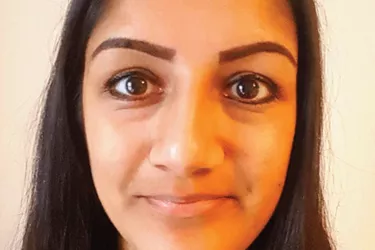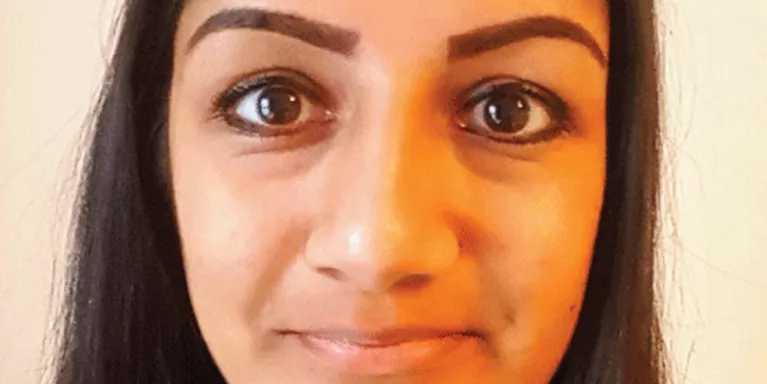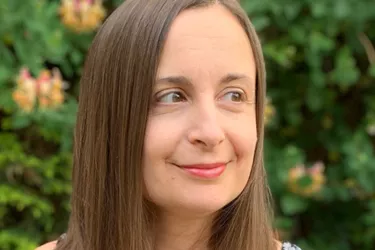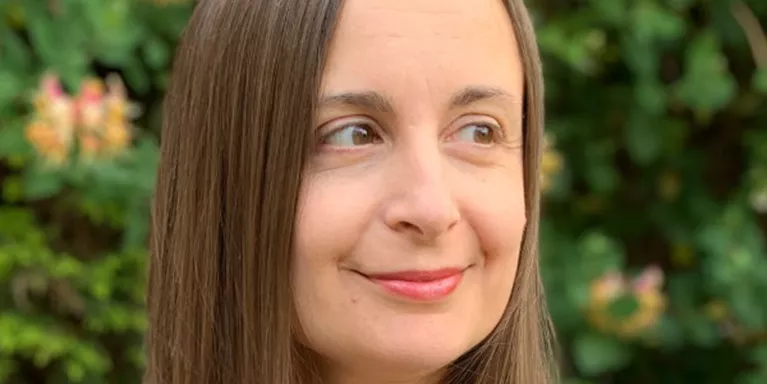Learning to live with my personality disorder
Alice blogs about coming to terms with being given a diagnosis of emotionally unstable personality disorder.
Alice is a 23 year old History graduate living in York who has experienced mental health problems.
"Being told I had emotionally unstable personality disorder (EUPD) wasn’t a huge shock - but it certainly wasn’t easy to accept."
I think I knew before the diagnosis - I’d been frantically Googling and asking questions for months. The existing mental illnesses I’d been living with for years were no longer a good enough explanation. They didn’t explain why I would impulsively spend hundreds of pounds, or start smoking, or binge drink. They didn’t explain why I desperately craved love and care yet isolated myself for days at a time, switching off my phone and staying in bed. They didn’t explain the weeks of dissociation and lost memories that followed the rollercoasters of extreme emotions. So being told I had emotionally unstable personality disorder (EUPD) wasn’t a huge shock - but it certainly wasn’t easy to accept.
Over the course of the seven years prior to the diagnosis, I’d been through generalised anxiety disorder (GAD), acute panic attacks, depression, and post-traumatic stress disorder (PTSD). I’d spent time on various anti-anxiety and antidepressant medications, been referred to the community mental health team, had many counselling sessions. I’d joined mental health awareness campaigns, stood up to those in my life who’d shown ignorance towards my illnesses and really worked hard to understand what it was I was facing. I would have considered myself an incredibly understanding person, and unashamed (as I should be) of what I’d been through - yet, the news that I was indeed experiencing EUPD turned everything on its head.
It wasn’t even my psychiatrist who told me - the report of the findings, including the diagnosis, was sent through a couple of days later and I couldn’t bear to read it myself. Instead, I passed the report to my most trusted friend, who read through it before giving me a summary of the doctor’s conclusions. He relayed the important points, as sensitively as he could, ending with that acronym I expected and feared: “E-U-P-D”. I cried. I begged him not to tell anyone else, afraid of others’ opinions, and judgements, and the stigma I was certain I would face. The open and honest mental health advocate of the past seven years was gone, replaced by this scared little girl I didn’t recognise.
"If people knew me to be ‘emotionally unstable’, who would give me that love I so desperately craved?"
I was terrified of the phrase ‘personality disorder’ - who would want to spend any time with me now that there was something wrong with my personality? If people knew me to be ‘emotionally unstable’, who would give me that love I so desperately craved?
In that moment I was ignorant to my own illness, refusing to believe that those with personality disorders could be anything more than the ‘evil’ and ‘manipulative’ stereotypes so often seen on film and in traditional media. It seemed to me that there were two categories of mental illnesses: those becoming gradually more talked about and accepted in the mainstream, such as depression and anxiety, and those rarely mentioned outside of their connection to a crime or violent act - schizophrenia, bipolar, personality disorders. So initially, I was terrified of having to disclose or explain my EUPD to anyone.
"I’m slowly becoming more comfortable with talking about my personality disorder."
A few months down the line and I’m slowly becoming more comfortable with talking about my personality disorder. Social media and the internet in general contributed hugely to me getting to this point. Mind’s online resources proved very helpful in understanding some of the symptoms individually, particularly when it came to dissociation, which I find the hardest part of EUPD to deal with.
If you haven’t dissociated yourself it can be tricky to understand, so try and imagine you’re in front of a TV, watching your life play out – you’re part of the audience, and you might not like what you’re seeing – but it’s as though someone has stolen the remote control, so you have no say in what you see, you can’t pause it or lower the volume or change the channel. You could be sat in front of that TV for minutes or months at a time. Later – when you are no longer dissociating – you have vague memories of what you just watched, but you need the plot and finer details explaining to you. It’s a horrid thing to experience and can make you feel like you’ve missed so much of your own life.
"As with all mental illnesses, struggling with loneliness can be debilitating."
As with all mental illnesses, struggling with loneliness can be debilitating. I don’t know of anyone in my day to day life dealing with EUPD and as much as I can look up the statistics that tell me thousands of people have the same diagnosis, when I’m vulnerable these numbers are meaningless.
I’d give anything to just be able to talk to one of these people in person. Social media has massively helped in dealing with the loneliness however - following individuals on Instagram and Twitter with Borderline personality disorder (BPD)/EUPD who post about what they experience, warts and all, helps me feel so much more ‘normal’, and provides a community of people who completely get it. They understand that there are months’ worth of my life I don’t remember, that so many relationships in my life have been altered or lost because of my illness, that I feel anger and sadness so intensely that it can start to physically hurt.
"I spend so much time wishing that I could get on a plane and fly away from my own mind."
I spend so much time wishing that I could get on a plane and fly away from my own mind, or just have one moment’s break from all the thoughts and emotions in my head. I’m due to begin dialectical behaviour therapy before the end of the year and hopefully this will give me the tools I need to face life in as safe and rational a way as possible. Until then, my focus is accepting EUPD as a part of me, as just another mental illness that I am capable of living with as I am with all the others.
I hope that I can share my experience of living with a personality disorder with anyone it might help, and surround myself with those who understand that there is nothing ‘wrong’ with my personality, but accept that I am merely unwell, and on my way to recovery.


Information and support
When you’re living with a mental health problem, or supporting someone who is, having access to the right information - about a condition, treatment options, or practical issues - is vital. Visit our information pages to find out more.
Share your story with others
Blogs and stories can show that people with mental health problems are cared about, understood and listened to. We can use it to challenge the status quo and change attitudes.















